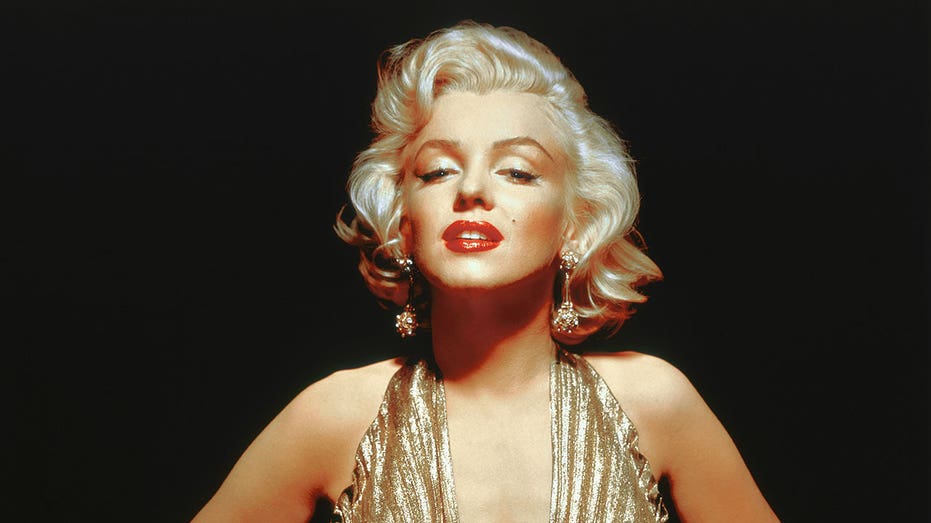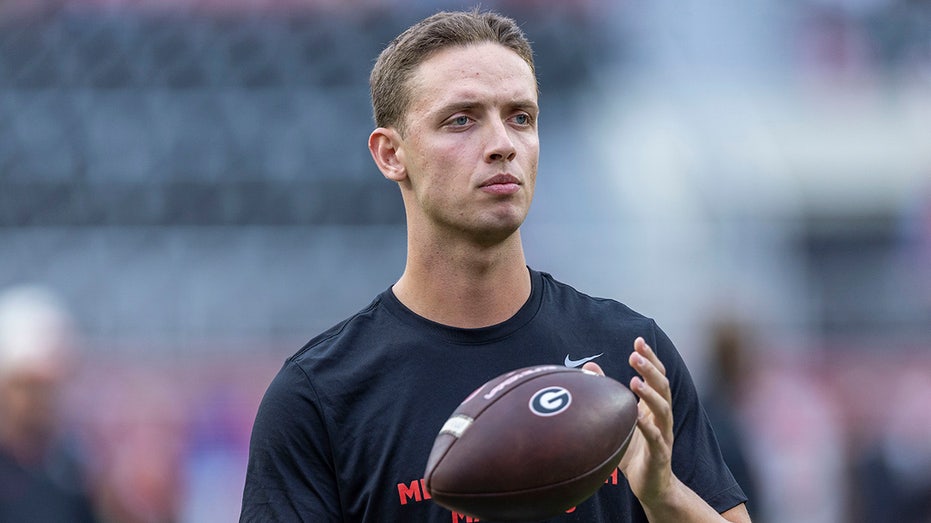AI generated Marilyn Monroe chatbot raises ethical questions on using dead celebrities’ likeness: experts
A new AI-generated Marilyn Monroe chatbot has raised ethical concerns over using the likenesses of dead celebrities without their consent.

Fans yearning to speak with Hollywood icon Marilyn Monroe now have their chance, thanks to artificial intelligence.
At the recent SXSW festival, AI technology company Soul Machines debuted their "Digital Marilyn," an AI-generated digital avatar that lets fans interact with the late actress through a chatbot.
According to Soul Machine’s website, their "revolutionary Biological AI technology" promises a "real-time, personalized interaction."
The site notes "Every interaction is unique. Digital Marilyn analyzes your preferences and tailors her responses accordingly, fostering a genuine connection that resonates with you on an individual level."
Soul Machines partnered with Authentic Brand Groups, which manages the rights to Monroe’s image and likeness.
"Marilyn Monroe remains a timeless icon, inspiring generations with her talent, charisma, and enduring legacy," Dana Carpenter, EVP of entertainment at Authentic, said in a statement to Variety. "We are thrilled to partner with Soul Machines, whose cutting-edge technology is the perfect match to bring Marilyn to life in the AI age. While Marilyn Monroe can never be replaced or duplicated, Digital Marilyn opens exciting possibilities for multiple generations of fans to engage with her in a whole new way, fostering a deeper connection and appreciation for her enduring spirit and the mark she left on the world."
Soul Machine and Authentic Brand Groups did not immediately respond to Fox News Digital’s request for comment.
Authentic Brand Group also manages other celebrities who have passed, like Elvis Presley, as well as living celebrities like Shaquille O’Neal and David Beckham.
WHAT IS ARTIFICIAL INTELLIGENCE (AI)?
O’Neal and Beckham having deals with an AI company may surprise some, but according to AI expert Marva Bailer, the move is a logical one.
"Really, it's trusting these brand agencies that they're hiring because these aren't brand agencies that are being hired to expand their brand in a positive and connected manner," she explained.
"These are not deep fake people. These are not people that are selling crazy things on [websites or] whatever. These are people that are business people and have values and ethics stated on their websites.
"They're looking to go public, they have big investors, technology as well as creative[s] and artist[s]. They want to do the right thing. It just feels uncomfortable right now for many of us."
CLICK HERE TO SIGN UP FOR THE ENTERTAINMENT NEWSLETTER
Despite the official partnership and everything being legal, others have expressed apprehension over the potential the "Digital Marilyn" represents.
"AI-induced digital resurrection poses legal and ethical concerns. This assumes everyone wants to be resurrected, when not everyone does," Kris Ruby, Founder of Ruby Media Group and author of "The Ruby Files," told Fox News Digital.
"There is an expression called rest in peace. AI essentially hijacks this concept by making sure that no one will ever rest in peace again. If everyone is eternally alive forever with deepfake replicas, who is resting, and where is the peace? Not only will we be competing against machines, we will also be competing against the dead. Has anyone stopped to think about the consequences for what that looks like to the next generation of the workforce? Advances in machine learning have made the concept of digital immortality within reach. But is that a good thing? Will machine learning monetization of the deceased mean that humans can never truly retire?"
Last year, the late Robin Williams' daughter, Zelda Williams, spoke out about an AI recreation of her father’s voice.
ROBIN WILLIAMS’ DAUGHTER, AND TOM HANKS, KEIRA KNIGHTLEY AMONG STARS FIGHTING AGAINST AI
In an Instagram story, the 34-year-old slammed the use of the technology, calling it "personally disturbing."
"I am not an impartial voice in SAG's fight against AI," she wrote, referring to the then ongoing actors and writers strikes. "I've witnessed for YEARS how many people want to train these models to create/recreate actors who cannot consent, like Dad."
"This isn’t theoretical, it is very very real. I’ve already heard AI used to get his ‘voice’ to say whatever people want and while I find it personally disturbing, the ramifications go far beyond my own feelings. Living actors deserve a chance to create characters with their choices, to voice cartoons, to put their HUMAN effort and time into the pursuit of performance," she continued.
"These recreations are, at their very best, a poor facsimile of greater people, but at their worst, a horrendous Frankensteinian monster, cobbled together from the worst bits of everything this industry is, instead of what it should stand for."
LIKE WHAT YOU’RE READING? CLICK HERE FOR MORE ENTERTAINMENT NEWS
According to The Guardian, Williams included a stipulation in his will that restricts the use of his image for 25 years after his death.
"Fans want to feel digitally connected to stars, and AI has made it increasingly possible to resurrect your favorite star long after they are gone. But the stars cannot consent to the usage," Ruby said.
She continued, "AI poses new challenges when it comes to monetization of the deceased. Up until now, the problem was manageable, because the barrier to entry to access the technology was significantly greater.
"People who are alive are having trouble protecting their image from AI training, much less those who are deceased. How can a family protect or control the image from illegal AI training of deceased stars if stars who are alive can’t even control this?"
Bailer noted that Williams’ case is different than Monroe’s, due to differences in how their estates are being run.
"Every single one of these discussions is different based on their legal contracts. And most of the contracts have a life of 25 to some even being 50 years. But some of the estates really haven't thought that far ahead, or they've moved on, and they really want and trust somebody else to manage that brand experience," she said.
When it comes to living stars like O’Neal and Beckham, Bailer notes their partnership with Authentic Brands "is a great example of how stars that are still in existence and very compatible with technology and their fan base, they're choosing to have these experiences. So this isn't really a negative. Obviously, it does involve compensation and economics, and we always have to have that in mind."
Ruby however, highlighted that some things are muddled for other actors and artists.
"While recent media coverage has focused on consent rights for stars who are deceased, little attention has been paid to consent rights for stars who are still very much alive today. Most have had their work illegally used to train machine learning models. They did not consent to the usage and will most likely not receive royalties for the non-consensual use of their work," she said.



